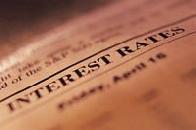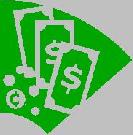
 |
|
| Financial Terms | |
| Fixed Expenses |
|
Information about financial, finance, business, accounting, payroll, inventory, investment, money, inventory control, stock trading, financial advisor, tax advisor, credit.
Main Page: accounting, inventory, finance, financial advisor, inventory control, financial, tax advisor, credit, |
Definition of Fixed Expenses
Fixed ExpensesCost of doing business which does not change with the volume of business. Examples might be rent for business premises, insurance payments, heat and light.
Related Terms:fixed expenses (costs)expenses or costs that remain the same in amount, breakeven pointThe annual sales volume level at which total contribution operating leverageA relatively small percent increase or decrease in variable expensesexpenses that change with changes in either sales volume segment marginthe excess of revenues over direct variable expenses and avoidable fixed expenses for a particular segment Annual fund operating expensesFor investment companies, the management fee and "other expenses," Fixed assetLong-lived property owned by a firm that is used by a firm in the production of its income.  Fixed asset turnover ratioThe ratio of sales to fixed assets. Fixed costA cost that is fixed in total for a given period of time and for given production levels. Fixed-annuitiesAnnuity contracts in which the insurance company or issuing financial institution pays a Fixed-charge coverage ratioA measure of a firm's ability to meet its fixed-charge obligations: the ratio of Fixed-datesIn the Euromarket the standard periods for which Euros are traded (1 month out to a year out) are Fixed-dollar obligationsConventional bonds for which the coupon rate is set as a fixed percentage of the par value. Fixed-dollar securityA nonnegotiable debt security that can be redeemed at some fixed price or according to Fixed-exchange rateA country's decision to tie the value of its currency to another country's currency, gold Fixed-income equivalentAlso called a busted convertible, a convertible security that is trading like a straight  Fixed-income instrumentsAssets that pay a fixed-dollar amount, such as bonds and preferred stock. Fixed-income marketThe market for trading bonds and preferred stock. Fixed price basisAn offering of securities at a fixed price. Fixed-price tender offerA one-time offer to purchase a stated number of shares at a stated fixed price, Fixed-rate loanA loan on which the rate paid by the borrower is fixed for the life of the loan. Fixed-rate payerIn an interest rate swap the counterparty who pays a fixed rate, usually in exchange for a GENERAL-AND-ADMINISTRATIVE EXPENSESWhat was spent to run the non-sales and non-manufacturing part of a company, such as office salaries and interest paid on loans. OPERATING EXPENSESThe total amount that was spent to run a company this year. SELLING EXPENSESWhat was spent to run the sales part of a company, such as sales salaries, travel, meals, and lodging for salespeople, and advertising. VARIABLE EXPENSESThose that vary with the amount of goods you produce or sell. These may include utility bills, labor, etc. ExpensesThe costs incurred in buying, making or producing goods and services.  Fixed assetsThings that the business owns and are part of the business infrastructure – fixed assets may be Fixed costsCosts that do not change with increases or decreases in the volume of goods or services Intangible fixed assetsNon-physical assets, e.g. customer goodwill or intellectual property (patents and trademarks). Semi-fixed costs Costs that are constant within a defined level of activity but that can increase or decrease when Tangible fixed assetsPhysical assets that can be seen and touched, e.g. buildings, machinery, vehicles, computers etc. Accrued expenses payableexpenses that have to be recorded in order for the financial statements to be accurate. Accrued expenses usually do not involve the receipt of an invoice from the company providing the goods or services. ExpensesCosts involved in running the company. Prepaid expensesexpenses that have been paid for but have not yet been used up; examples are prepaid insurance and prepaid rent. accrued expenses payableThe account that records the short-term, noninterest- fixed assetsAn informal term that refers to the variety of long-term operating revenue-driven expensesOperating expenses that vary in proportion to unit-driven expensesexpenses that vary in close proportion to changes Fixed Assets Turnover RatioA measure of the utilization of a company's fixed assets to Fixed Charge Coverage RatioA measure of how well a company is able to meet its fixed fixed costa cost that remains constant in total within a specified fixed overhead spending variancethe difference between the total actual fixed overhead and budgeted fixed overhead; fixed overhead volume variancesee volume variance Fixed-income securityA security that pays a specified cash flow over a Fixed assetAn item with a longevity greater than one year, and which exceeds a company’s Fixed costA cost that does not vary in the short run, irrespective of changes in any Fixed overheadThat portion of total overhead costs which remains constant in size fixed costsCosts that do not depend on the level of output. Fixed Exchange RateAn exchange rate held constant by a government promise to buy or sell dollars at the fixed rate on the foreign exchange market. Fixed-location storageAn inventory storage technique under which permanent Fixed AssetsLand, buildings, plant, equipment, and other assets acquired for carrying on the business of a company with a life exceeding one year. Normally expressed in financial accounts at cost, less accumulated depreciation. Fixed Interest RateA rate that does not fluctuate with general market conditions. Fixed Rate LoanLoan for a fixed period of time with a fixed interest rate for the life of the loan. Longer-Term Fixed AssetsAssets having a useful life greater than one year but the duration of the 'long term' will vary with the context in which the term is applied. Operating ExpensesThe amount of money the company must spend on overhead, distribution, taxes, underwriting the risk and servicing the policy. It is a factor in calculating premium rates. Cash flow from operationsA firm's net cash inflow resulting directly from its regular operations contribution marginAn intermediate measure of profit equal to sales revenue unit marginThe profit per unit sold of a product after deducting product Per DiemA fixed rate paid to employees traveling on behalf of a business, Capital InvestmentsMoney used to purchase fixed assets for a business, such as land, buildings, or machinery. Also, money invested in a business on the understanding that it will be used to purchase permanent assets rather than to cover day-to-day operating expenses. Related to : financial, finance, business, accounting, payroll, inventory, investment, money, inventory control, stock trading, financial advisor, tax advisor, credit. |